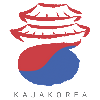Korean Lessons ᚛ Level 1 - My First Steps in Korean (Lessons 1 to 30) ᚛ Lesson 8 - Korean Pronunciation Rules and Exceptions
Korean Pronunciation Rules and Exceptions
Like all languages, Korean has its share of pronunciation rules and exceptions! In this course, we will see the main pronunciation exceptions that you may encounter when learning Korean.
The Truth About Consonants ㄱ ㄷ ㅂ ㅈ
In linguistics, there are voiced and unvoiced consonants. This refers to the fact some consonants require the use of vocal cords (voiced consonants) while others do not (unvoiced consonants).
In English, we can classify certain sounds in pairs - sounds which are produced in the same way physically, but one requires vocal cords and the other does not.
|
Voiced consonant |
Unvoiced consonants |
|
G |
K |
|
D |
T |
|
B |
P |
|
J |
CH |
In Korean, when you learn Hangul, the unvoiced consonants are as follows:
- ㄱ is closest to the sound [k]
- ㄷ is closest to the sound [t]
- ㅂ is closest to the sound [p]
- ㅈ is closest to the sound [ch]
However, when consonants are involved in words or phrases, then the following rule applies:
- If the consonant begins a word or phrase, it is unvoiced.
- If the consonant is in the middle of a word or phrase, it is voiced.
So, when we find the four consonants seen previously in the middle of a word, their sound changes:
- ㄱ is closer to the sound [g]
- ㄷ is closer to the sound [d]
- ㅂ is closer to the sound [b]
- ㅈ is closer to the sound [j]
Examples
가구 (= furniture)
On its own, 가 is close to the sound [ka] and 구 is close to the sound [ku]. However, when these two syllables are together, the first ㄱ (from 가) is pronounced as a unvoiced consonant while the second ㄱ (from 구) is pronounced as a voiced consonant. The pronunciation of 가구 is therefore close to [kagu].
보다 (= to see)
On its own, 보 is close to the sound [po] and 다 is close to the sound [ta] but the fact that this last syllable is in the middle of a word will make the consonant ㄷ be pronounced as a voiced consonant. This means that 보다 has a pronunciation close to [poda].
가자. (= Let's go.)
Also in this example,
가 is close to the sound [ka] and
자, alone, would be close to the sound [tcha], but in this situation the ㅈ is pronounced as a voiced consonant. 가자 has a pronunciation similar to [kaja].
Note: This is where the name KajaKorea comes from!
How to pronounce ㅢ
The compound vowel ㅢ is a bit special in Korean since it can be pronounced in 3 different ways! We have seen that its basic pronunciation is similar to [eu-i], produced by stretching the lips rather than rounding them. However, this is not always the case.
Learn more
Sound Variations and Exceptions
There are small pronunciation exceptions in cases where it would normally be difficult to pronounce a word or expression, in order to make reading easier.
If you are only at the very beginning of learning Korean, I advise you skim the following section, without spending too much time on it, bearing in mind that many words will be pronounced differently from what they seem. You can return to it later when you’re more comfortable with Korean pronunciation.
Nasalization
Some consonant combinations are difficult to pronounce and create the nasalization of sounds (pronouncing through the nose), that is a transformation of consonants into a nasal sound (ㄴ, ㅇ or ㅁ).
| End of the first syllable | Start of the second syllable | Result | Examples |
|
k (ㄱ / ㅋ / ㄲ) |
ㄴ / ㅁ |
ㄱ / ㅋ / ㄲ → ㅇ |
국물 → [궁물] 득남 → [등남] |
|
t (ㄷ / ㅅ / ㅈ / ㅊ / ㅌ / ㅎ / ㅆ) |
ㄴ / ㅁ |
ㄷ / ㅅ / ㅈ / ㅊ / ㅌ / ㅎ / ㅆ → ㄴ |
닫는 → [단는] 있는 → [인는] |
|
p (ㅂ / ㅍ) |
ㄴ / ㅁ |
ㅂ / ㅍ → ㅁ |
합니다 → [함니다] 십만 → [심만] |
|
ㅁ / ㅇ |
ㄹ |
ㄹ → ㄴ |
심리 → [심니] |
|
k (ㄱ / ㅋ / ㄲ) |
ㄹ |
ㄱ / ㅋ / ㄲ → ㅇ ㄹ → ㄴ |
막론 → [망논] |
|
p (ㅂ / ㅍ) |
ㄹ |
ㅂ / ㅍ → ㅁ ㄹ → ㄴ |
삽리 → [삼니] |
Fortition
The consonants which have for finals of [k] (ㄱ ㅋ ㄲ), [t] (ㄷ ㅌ ㅅ ㅆ ㅈ ㅊ) et [p] (ㅂ ㅍ) make the following initial consonant double if possible (ㄲ ㄸ ㅃ ㅆ ㅉ).
| End of the first syllable | Start of the second syllable | Result | Examples |
|
k (ㄱ ㅋ ㄲ), t (ㄷ ㅌ ㅅ ㅆ ㅈ ㅊ), p (ㅂ ㅍ) |
ㄱ |
ㄱ → ㄲ |
학교 → [학꾜] |
|
k (ㄱ ㅋ ㄲ), t (ㄷ ㅌ ㅅ ㅆ ㅈ ㅊ), p (ㅂ ㅍ) |
ㄷ |
ㄷ → ㄸ |
찾다 → [찾따] |
|
k (ㄱ ㅋ ㄲ), t (ㄷ ㅌ ㅅ ㅆ ㅈ ㅊ), p (ㅂ ㅍ) |
ㅂ |
ㅂ → ㅃ |
국밥 → [국빱] |
|
k (ㄱ ㅋ ㄲ), t (ㄷ ㅌ ㅅ ㅆ ㅈ ㅊ), p (ㅂ ㅍ) |
ㅈ |
ㅈ → ㅉ |
웃지 → [웃찌] |
|
k (ㄱ ㅋ ㄲ), t (ㄷ ㅌ ㅅ ㅆ ㅈ ㅊ), p (ㅂ ㅍ) |
ㅅ |
ㅅ → ㅆ |
학생 → [학쌩] |
|
ㅎ |
ㅅ |
ㅅ → ㅆ |
좋습니다 → [조씁니다] |
Assimilation of ㄹ
Learn more
Aspiration and weakening of ㅎ
Learn more
Palatalization
Some specific cases cause the palate to pronounce words that in theory do not need it.
Learn more
There are still cases of sound variations with regard to consonants in Korean. However, this is case by case and you will learn to pronounce the words this applies to with a little practice and listening.
If your pronunciation is not perfect, don't panic, it's completely normal! Korean is a language with difficult sounds for English speakers, it will take you months or even years of practice before you have perfect pronunciation.
Exercises
Learn more
This printable eBook teaches you Korean writing and includes more than 1,000 Korean vocabulary words divided into 40 categories. Each word comes with audio pronunciation recorded by native Korean speakers (no AI)!
On top of that, you’ll also get access to an online vocabulary learning tool based on the scientifically proven Leitner spaced repetition method.
Learn more

